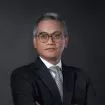This Newsflash is a part of our Health Omnibus Law Newsflash series, i.e., Law No. 17 of 2023 dated August 8, 2023 on Health (the "Health Law"). The Health Law governs a wide range of topics in the health sector, including utilization of local and foreign health personnel.
As previously noted, the Health Law is issued using the omnibus method. The Health Law revokes several laws and regulations in the health sector, including (i) Law No. 36 of 2009 dated October 13, 2009 on Health (the "Previous Health Law"), and (ii) Law No. 36 of 2014 dated October 17, 2014 on Health Personnel (the "Health Personnel Law").
We highlight the main changes pertaining to the utilization of Indonesian and Foreign Medical Personnel and Health Personnel as follows.
- Rights and Obligations of Medical and Health Personnel
Prior to the Health Law, provisions relating to the rights and obligations of Medical Personnel and Health Personnel were insufficient and governed under certain implementing regulations of the Previous Health Law. Under the Health Law, the rights of Medical Personnel and Health Personnel are as follows: (i) to receive legal protection as long as they carry out the duties in accordance with professional standards, service standards, standard operating procedures, and professional ethics, as well as needs of a patient's health, (ii) to receive complete and correct information from the patient or his/her family, (iii) to receive adequate salary/wages, compensation for services, and performance allowances in accordance with applicable laws and regulations, (iv) to receive protection for safety, occupational health, and security, (v) to receive health insurance and employment insurance in accordance with the applicable laws and regulations, (vi) to receive protection from treatment that is contrary to human dignity, morals, decency, and socio-cultural values (including acts of violence, harassment, and bullying), (vii) to receive an award in accordance with the applicable laws and regulations, (viii) to receive opportunity to develop themselves through competency development, knowledge, and career in his/her profession, (ix) to reject the wishes of the patient or other parties that are contrary to professional standards, service standards, standard operating procedures, the code of ethics, or applicable laws and regulations, and (x) to have other rights in accordance with the applicable laws and regulations.
On the other hand, in practicing medicine, the Medical Personnel and Health Personnel shall carry out the following obligations: (i) to provide health services in accordance with professional standards, service standards, standard operational procedures, and professional ethics as well as patient's health needs; (ii) to obtain an approval from a patient or his/her family for any action to be administered, (iii) too keep a patient's health confidential, (iv) to prepare and maintain records and/or documents regarding examinations, care, and actions taken, and (v) to refer patients to the Medical Personnel or Health Personnel who have the competence and appropriate authority.
We note that the Health Law expressly stipulates that provisions on the majority of matters governed under the Health Law are to be further governed in Presidential Regulations, Government Regulations, and Minister of Health Regulations. Having said this, the implementation of the Health Law, particularly on the eligibility of foreign medical professionals to practice in Indonesia, remains to be seen. We also anticipate that, considering the objections from certain medical society, there is a possibility for the Health Law to be challenged by the medical society or other parties of interest through the Constitutional Court or Mahkamah Konstitusi.
- Eligibility for Indonesian and Foreign Overseas Graduate Medical Personnel and Health Personnel to Practice in Indonesia
The Health Law introduces the eligibility for Indonesian and foreign overseas graduate Medical Personnel or Tenaga Medis (e.g., doctors and dentists) and Health Personnel or Tenaga Kesehatan (e.g., nurses) to practice in Indonesia by fulfilling certain requirements and obtaining certain licenses.
The Health Law stipulates that in order to practice in Indonesia, Indonesian overseas graduate Medical Personnel and Health Personnel are subject to a competency evaluation (i.e., administrative completeness and practice capability assessments) by the Ministry of Health (the "MOH"). Such Medical Personnel and Health Personnel shall then participate in an adaptation program at a Health Service Facility or Fasilitas Pelayanan Kesehatan by firstly obtaining a Registration Certificate (Surat Tanda Registrasi or an "STR") and a Practice License (Surat Izin Praktik or an "SIP").
Similarly, foreign overseas graduate Medical Personnel and Health Personnel who intend to practice in Indonesia are subject to a competency evaluation. However, this only applies to specialist and sub-specialist Medical Personnel and Health Personnel with a certain competency level. Such Medical Personnel and Health Personnel shall also participate in an adaptation program by firstly obtaining an STR and an SIP.
One important note is that the Health Law exempts the above requirements to which the overseas graduate Medical Personnel and Health Personnel shall be allowed to practice in Indonesia provided that they (i) graduate from a recognized medical school and have a minimum of 2 (two) years of practice experience abroad (applicable for Indonesian overseas graduates) or 5 (five) years of specialized or sub-specialized or Health Personnel with a certain competency level practice experience abroad, evidenced by a document issued by an authorized institution in the relevant country (applicable for foreign overseas graduate), or (ii) are experts in a certain specific advanced field in medical services, evidenced by a competency certificate, and specifically for foreign overseas graduates, have practiced at least 5 (five) years abroad.
Further, foreign overseas graduate Medical Personnel (specialists and sub-specialists) and Health Personnel (with certain competency level) may practice in Indonesia for so long that the following requirements are fulfilled (i) there is a request from a Health Service Facility based on its needs, (ii) for the purpose of transfer of technology and knowledge, and (iii) for a maximum period of 2 (two) years and may be extended once for the next 2 (two) years.
We understand that with the above provisions the Government intends to address Indonesia's shortage of doctors and improve the quality of health services, despite concerns from the medical society that the above provisions may impact the availability of job vacancies for Indonesian Medical Personnel and Health Personnel.
Eligibility for Foreign Domestic Graduate Medical Personnel and Health Personnel to Practice in Indonesia The Health Law provides that foreign Medical Personnel and Health Personnel that are domestic graduates may also practice in Indonesia by firstly obtaining an STR and an SIP in accordance with applicable laws and regulations. However, such Medical Personnel and Health Personnel may only practice in Indonesia based on the request of a Health Service Facility for a certain period of time.
The content of this article is intended to provide a general guide to the subject matter. Specialist advice should be sought about your specific circumstances.



